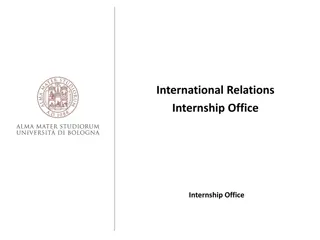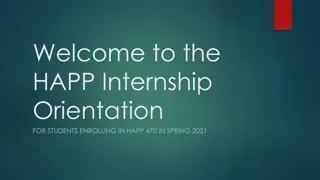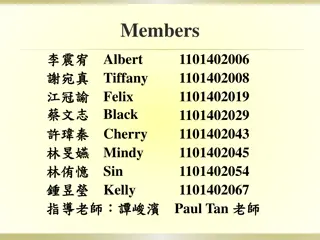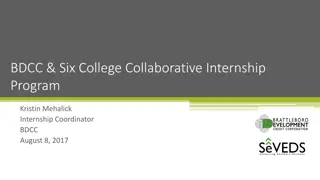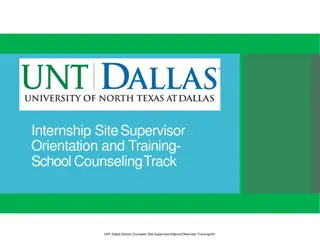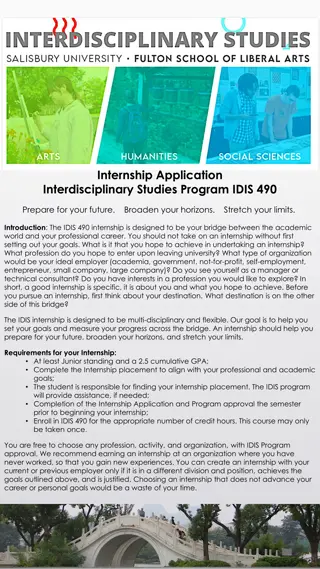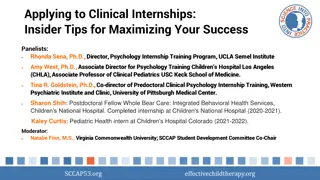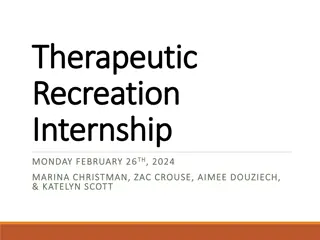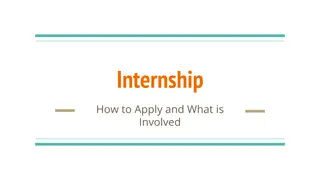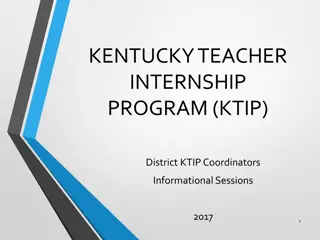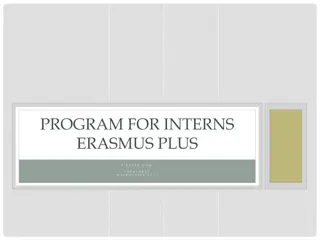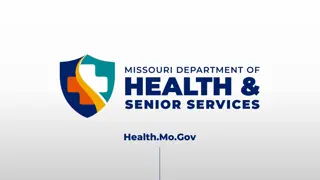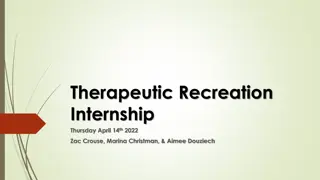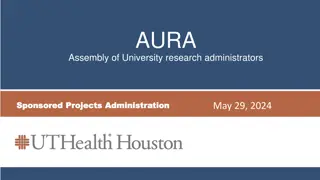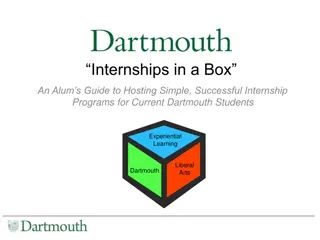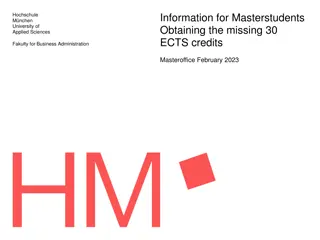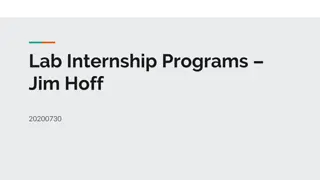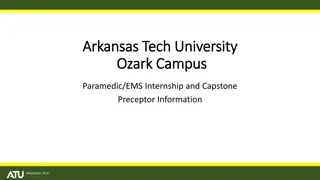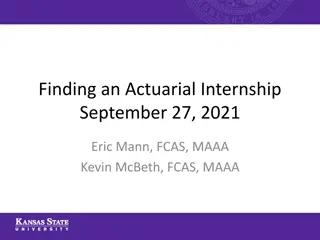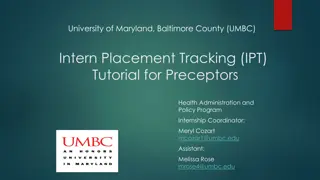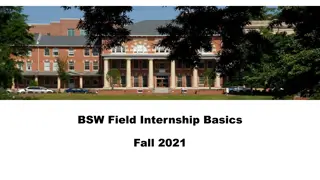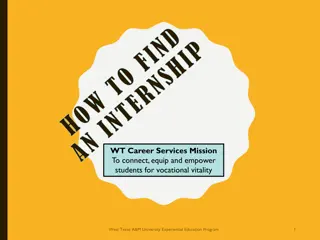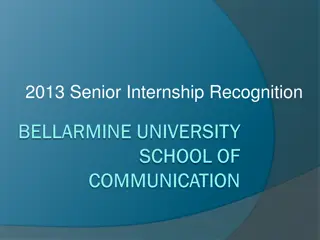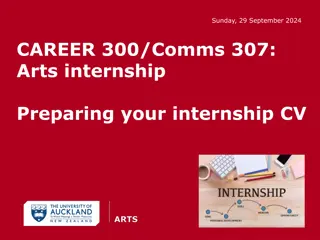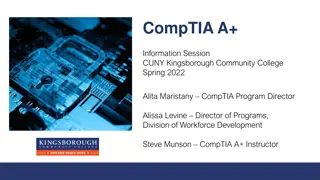Comprehensive Overview of Dietetic Internship Program
The Dietetic Internship Program at Keiser University prepares interns through a distance learning format with a focus on community nutrition. The program emphasizes hands-on experience in various settings like acute care, long-term care, and food service systems. Registered Dietitians and other professionals serve as preceptors to guide interns in developing technical and professional skills for future practice. The program aims to provide a well-rounded learning experience that includes coaching, mentoring, and practical application in diverse areas of dietetics.
Download Presentation

Please find below an Image/Link to download the presentation.
The content on the website is provided AS IS for your information and personal use only. It may not be sold, licensed, or shared on other websites without obtaining consent from the author. Download presentation by click this link. If you encounter any issues during the download, it is possible that the publisher has removed the file from their server.
E N D
Presentation Transcript
Keiser University Graduate Dietetic Internship is a distance program with an emphasis concentration of Community. Potential interns locate their own preceptors in their own geographic area. Potential interns must complete: Concentration Hours Acute care LTC 640 Community 520 Food Service Systems/ Dietetic Management Total of hours to be completed are 1320 160
Volunteering to give personal instruction, training, teaching ,supervision, coaching, role model, orienting to work environment, feedback.
The goal is to prepare interns for future dietetic practice. The intern is learning technical dietetic skills as well as professional behavior skills. Preceptors are the role-model for the intern. Below is an example of what coaching and mentoring is and what coaching and mentoring is not.
Registered Dietitians and other professional practitioners as Preceptors give of their: In areas of Retail, Sports, Eating Disorders, Dialysis, Medical Nutrition Therapy (MNT), Long-term care, Food Service Systems/Dietetic Management, Public health/Community
Preceptors have mastered their practice and are dedicated professionals for the advancement of the profession. Preceptors provide the opportunity to share your expertise and enthusiasm for his or her area of expertise. Meeting regularly with your intern both formally and informally Guiding your intern through the daily operations of the program/facility Arranging for your intern to interact with other disciplines and other departments Observing your intern s professional style and behavior at the site
Serve as a facilitator helping the intern meet personal and course objectives Nurturer the intern providing support and guidance Resource to guide the intern to appropriate sources for learning Monitor how the intern manages their time without patrolling Introduce the intern to the culture, politics and rules of the organization/agency Intern is not considered free labor Providing your intern feedback for technical and professional growth Listening to your intern Modeling and providing time management techniques Serve as a teacher providing knowledge, guidance and support Demonstrate effective interpersonal and communication skills Sensitive to the learning needs of the intern Provide feedback effectively to interns and/or to the program director/program coordinator
Give Respect to all dietitians, facility employees, patients and visitors Interns will be expected to: Wash your hands before entering all patient rooms. Ask preceptor or manager questions related to learning food service. Look-up answers and further discuss answers with preceptor or manager. Avoid texting and/or personal cell phone usage and/or internet usage not patient related.
May have to put in more than 8 hours days at times May be expected to help with catering, doctor s dining, medical executive meeting intern may have to work an evening event May need to give up a computer to manager or supervisor graciously Welcome to attend any in-services or continuing education meeting (permission of CNM or preceptor) Contact preceptor or food service director or manager of any absences or tardiness before the start of the work shift. Be self-motivated, self-disciplined and responsible for your OWN learning Listen to preceptor(s) and take direction from him/her Intern respects patient and/or departmental confidentiality at all times Some facilities may have more than one campus during the internship you may have to travel between campuses (possibly on the same day) Intern schedule subject to change often depending on the facilities needs
Intern will work the hours of the manager or supervisor or subsystem of the kitchen assigned Intern will notify PD/CC of absences or tardiness before the start of the work shift Notify preceptor or food service director or manager arrival at facility and leaving the facility for day Intern must gain permission from preceptor or food service director or manager to leave the facility during the shift Intern will coordinate with preceptor and gain approval of PD/CC to make- up any missed hours Intern s do not do homework assignments during rotations may gather information for Performance Improvement or other projects assigned by preceptor
The Preceptor handbooks share the types of assignments the intern will complete during the rotation. Assignments can be modified still meeting the assigned ACEND competencies for the assignment. Handbook clearly presents the Keiser mission and the mission of the of the distance learning internship.
Keiser University Graduate School Affiliation Agreement. The Keiser University Graduate School Affiliation agreement must be fully executed before the intern can begin the rotation. Keiser University will gladly work with your organizations affiliation agreement. Interns will be required to meet the requirements of the facility before beginning the rotation.
For MNT and other rotations providing nutrition education/counseling, Keiser University provides the medical malpractice insurance for the intern. A Keiser University Certificate of Liability can be issued.
Preceptors are asked to sign the intern s weekly time sheet. Listed on the second page are a listing of potential meetings the intern can observe and participate. Please indicate the meeting.
The Commission on Dietetic Registration (CDR) has developed an online Dietetics Preceptor Training Course. The course is a series of modules offering the preceptors guidance throughout the precepting process. The preceptor can receive 8 Continuing Professional Education (CPE) at no cost. The CDR website for the training course: https://www.cdrnet.org/news/online-dietetics- preceptor-training-course-free-of-charge
Effective June 2017, the Commission on Dietetic Registration (CDR) has granted Continuing Professional Education Units (CPEU) for precepting interns from an ACEND accredited internship. CDR has authorized 3 CPEUs per year for precepting an intern. Precepting CPEU forms are located on the Commission for Dietetic Registration website (https://www.cdrnet.org/cpeu-credit-for-preceptors). Complete the forms, email forms to program director for signature.
Dona Greenwood, PhD, RDN, LDN, FAND dgreenwood@keiseruniversity.edu Laura Goolsby, MS, RDN, LDN lgoolsby@keiseruniversity.edu
On behalf of the Keiser University Graduate School, Distance Learning Internship team, we would like to express our appreciation for giving of your time and expertise to mentor the intern through this internship rotation. Your dedication to nutrition and dietetics will assist the intern in gaining the knowledge and skills necessary for entry-level practice.




